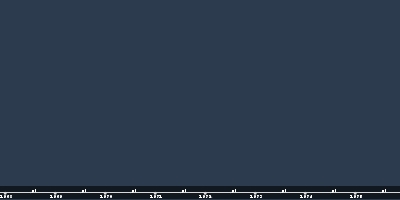1 Aug 1945 Jahr - Postdam Conference
Beschreibung:
Postdam Conference: The conference, held in late July and early August 1945, in which Soviet Union leader Joseph Stalin accepted German reparations only from the Soviet zone, the eastern part of Germany, in exchange for American recognition of the Soviet-drawn Polish border. The agreement paved the way for the division of Germany into East and West.Developments in the wake of the Yalta Conference hardened a split among the Allies, with the Soviets on one side and the Americans and British on the other. At the Potsdam Conference outside Berlin in late July and early August 1945, President Truman replaced the deceased Roosevelt. Inexperienced in world affairs, Truman found himself thrown into enormously complicated negotiations. His instinct told him to stand up to Soviet aggression. “Unless Russia is faced with an iron fist and strong language,” he said, “another war is in the making.” But Truman’s bluster had no effect in Eastern Europe, where Soviet-imposed governments in Poland, Hungary, and Romania were backed by the Red Army. The elections called for at Yalta eventually took place in Finland, Hungary, Bulgaria, and Czechoslovakia, with varying degrees of democratic openness. Nevertheless, Stalin got the client regimes he desired in those countries and would soon exert near-complete control over their governments. Stalin’s unwillingness to honor self-determination for nations in Eastern Europe was, from the American point of view, the precipitating cause of the Cold War.
British prime minister Winston Churchill and Soviet premier Joseph Stalin stand on opposite sides of U.S. president Harry Truman, shaking hands during the Potsdam Conference. Concluding mere days before the United States dropped an atomic bomb on Hiroshima, Japan, Potsdam determined the fate of postwar Germany and much of Eastern Europe.
The question of Germany posed the biggest challenge at Potsdam. American officials believed that a revived German economy would ensure the prosperity of democratic regimes and capitalism throughout Western Europe — and prevent Germans from turning again to Nazism. Stalin had a more immediate objective: extracting reparations from Germany in the form of industrial machines and goods. To prevent the Soviets from dismantling German industry, and thereby impoverishing Germans for a generation, Truman and Secretary of State James Byrnes convinced Stalin to take reparations only from the Soviet zone, which was largely rural and held little wealth or industry to plunder. In exchange, the Americans recognized a redrawn German-Polish border favored by Stalin. Compromises had been reached, but each side left Potsdam distrustful of the other (Map 24.1).
The secret negotiations at Yalta and Potsdam demonstrated that the United States and the Soviet Union had starkly different postwar objectives. A subsequent public war of words only intensified those differences. In February 1946, Stalin proclaimed in a speech that, “the unevenness of development of the capitalist countries” was likely to produce “violent disturbance” and even another war. He seemed to position blame for any future war on the capitalist West. Churchill responded in kind a month later. While visiting Truman’s home state of Missouri to be honored for his wartime leadership, Churchill accused Stalin of drawing an “iron curtain” around Eastern Europe and allowing “police government” to rule its people. He went further, claiming that “the fraternal association of the English-speaking peoples,” and not Russians, ought to set the terms of the postwar world.
The nations of Europe had barely known peace before the tense standoff between the Soviet Union and the United States threatened another war. Stalin was intent on establishing client states in Eastern Europe, and the United States was equally intent on reviving Germany and establishing a system to ensure collective security in Western Europe. Among the Allies, anxiety about a Nazi victory in World War II had been quickly replaced by the threat of a potentially cataclysmic war with the Soviet Union.
Zugefügt zum Band der Zeit:
Datum:
1 Aug 1945 Jahr
Jetzt
~ 80 years ago
